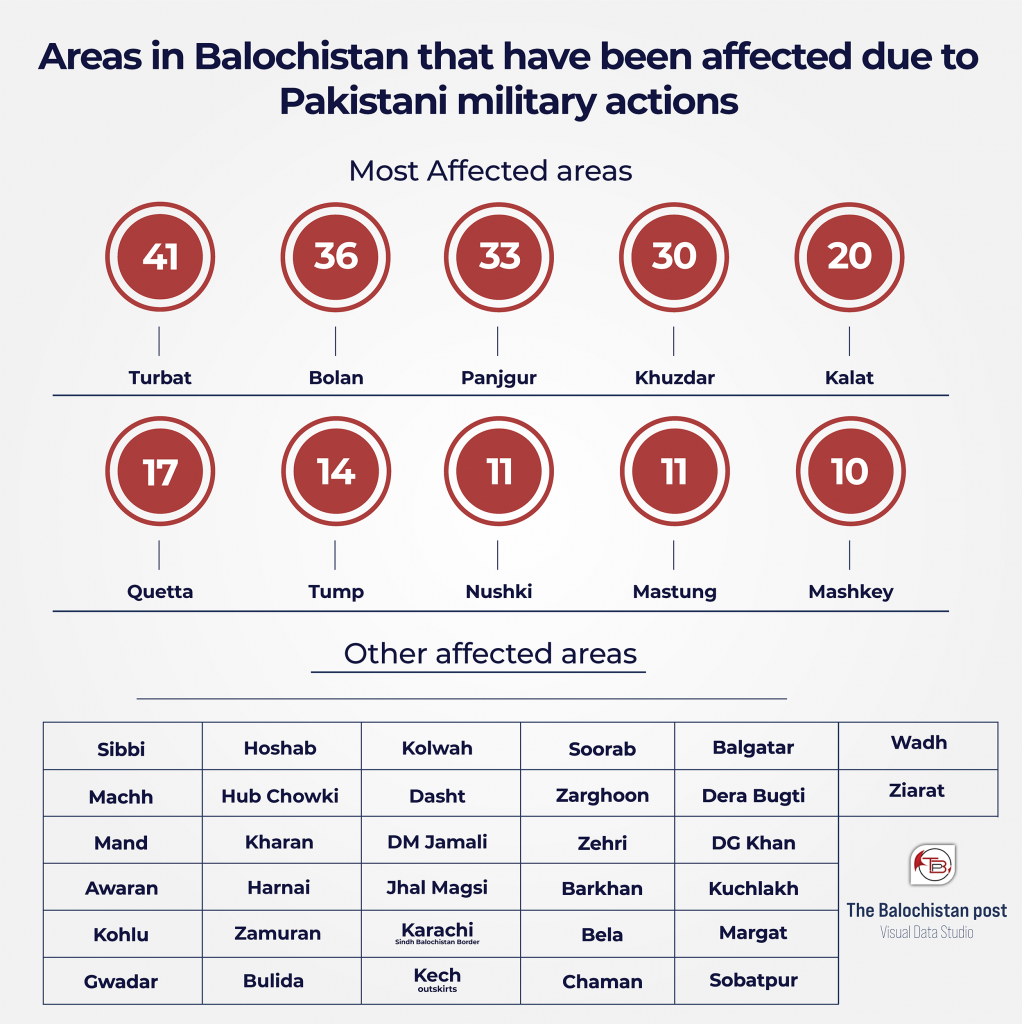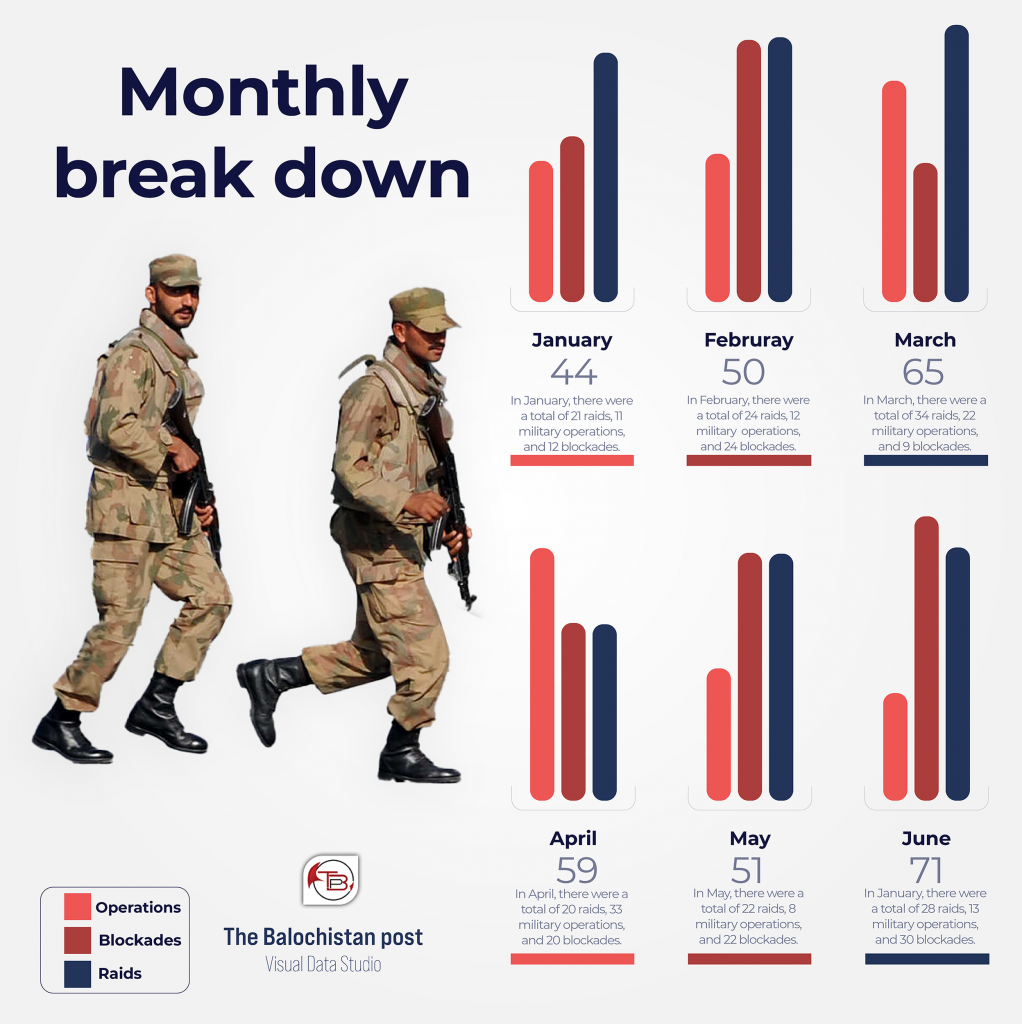Balochistan continuously faces a deluge of reports detailing military operations, house raids, enforced disappearances, ‘fake encounters’, and protests. Many of these incidents, particularly those in remote areas, often go unreported due to communication limitations and deliberate non-disclosure at the government level.
Data compiled by The Balochistan Post (TBP) reveals that, throughout the first half of 2023, military operations, house raids, and blockades conducted by Pakistani forces — which include the paramilitary Frontier Corps (FC), the Counter-Terrorism Department (CTD), intelligence agencies, police, and other military institutions — were widespread across Balochistan.

The Balochistan Post’s Visual Studio infographic provides a detailed account of these activities. According to this data, Pakistani forces’ operations affected 42 different areas within Balochistan during this period.

Among the most affected areas were Turbat with 40 operations, Bolan with 36, Panjgur with 33, Kharan with 30, Kalat with 20, Quetta with 17, Tump with 14, Nushki with 11, and Mastung also with 11 operations.
Throughout the first half of this year, the Pakistan Army conducted a total of 361 operations in Balochistan. These included 149 raids, 113 blockades, and 99 military operations. Some of these operations led to extended periods of military blockades in certain areas, including a 20-day-long blockade in parts of Bolan.

These raids reportedly did not adhere to proper legal procedures. Residents reported late-night incursions, harassment of women and children, and the detention of young men and elders, who were reportedly kept in illegal custody. In addition, there were instances of populated areas being subjected to mortar attacks.
Furthermore, there were alarming reports of women and children being used as human shields during military operations, extrajudicial killings of men, and allegations of harassment during blockades in cities, villages, and highways.

The number of operations varied on a monthly basis: there were 40 reported in January, 50 in February, 65 in March, 59 in April, 51 in May, and a peak of 71 operations reported in June.






























